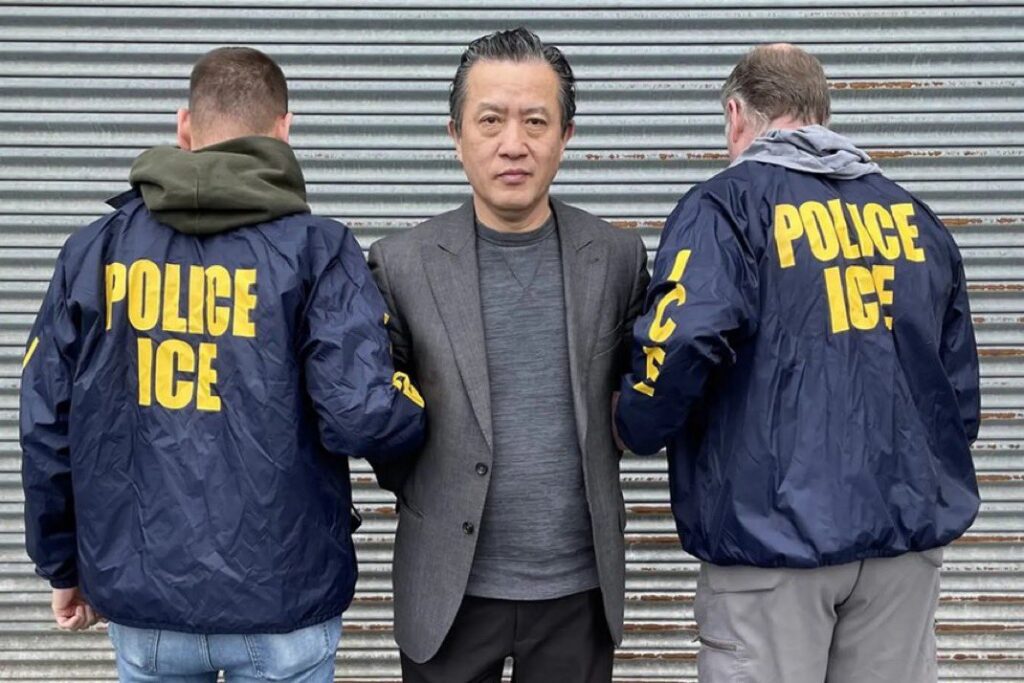A New Jersey Sushi restaurant owner is in ICE custody after he was convicted of conducting espionage operations for China last year.
Ming Xi Zhang, known as “Sushi John,” was taken into custody by federal immigration with ICE’s Newark field office on March 24. Zhang, 61, is the owner of Ya Ya Noodles in Montgomery Township, New Jersey.
Despite the serious conviction, the Biden Administration allowed him to remain in the United States with, when compared with the sentences received by peaceful January 6 trespassers, an incredibly light sentence.
According to ICE, Zhang legally entered the United States in 2000, but later “violated the terms of his lawful admission.”
“Any illegal alien conducting activities related to espionage, sabotage or export control against the United States is subject to deportation,” ICE Newark Field Office Director John Tsoukaris said in a statement.

He is currently being held at the Elizabeth Detention Center while awaiting immigration proceedings, a worker at his restaurant told the New York Post. “He’s doing good, I mean, given the circumstances,” the worker said. “But yeah, he’s just kind of waiting… to get let out.”
According to the report, the community surrounding Zhang’s restaurant has apparently rallied around him and his restaurant in the days following his arrest. “The whole town has been really supportive,” the worker said. “Everyone’s been coming in, offering phone numbers, talking to his family . . . everyone’s really supportive.”
The arrest comes as President Donald Trump’s Administration seeks to ramp up its mass deportation and removal efforts.
The administration has won a number of significant court victories in recent days. On Saturday, a federal judge in Washington ruled that federal immigration agents can conduct enforcement operations at “sensitive” locations, such as places of worship. More than two dozen Jewish and Christian organizations had filed a lawsuit seeking to block the order, arguing that the policy infringes on their right to religious freedom and has led to a decline in attendance at religious services.
U.S. District Judge Dabney Friedrich, who was appointed by Trump during his first term in the White House, ruled against the plaintiffs, however. In addition to finding that the plaintiffs lacked standing, or the legal right to bring a lawsuit forward, she also ruled that they failed to provide sufficient evidence that the administration was targeting places of worship.
That ruling comes on the heels of what was the most significant court victory for the Trump Administration in the early days of the president’s second term in office, when the U.S. Supreme Court ruled in favor of his ability to invoke the Alien Enemies of 1798.
The order grants the administration expanded powers to detain and deport illegal aliens suspected of having ties to foreign terrorist or criminal organizations. Trump invoked the order to deport a number of Venezuelan nationals with ties to the ultra-violent Tren de Aragua gang, though U.S. District Judge James Boasberg, an Obama appointee, moved to block the order.
Boasberg’s ruling was ultimately overturned in a 5-4 decision from the U.S. Supreme Court.




